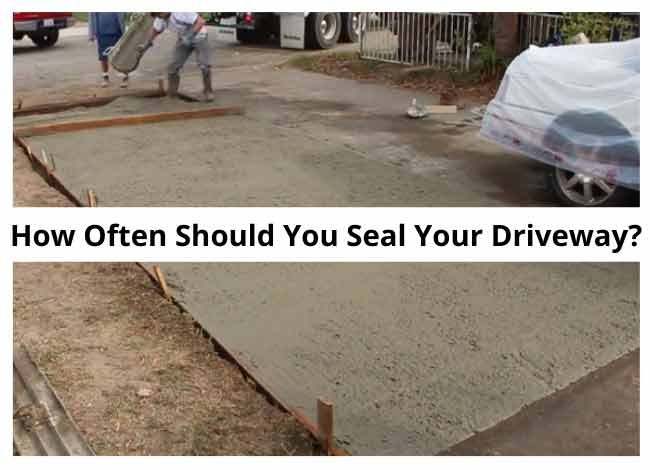Last Updated on April 21, 2025
If you want your asphalt driveway to last longer and maintain its appearance, proper sealing and regular maintenance are crucial. Sealing your driveway provides essential protection against damaging elements such as UV rays, heavy rain, frost, oil spills, and road salts. A well-sealed asphalt surface can typically last between two to three years before requiring another coat.
However, knowing when to seal your asphalt driveway depends on several key factors. First, assess the current condition of the driveway—check for cracks, fading, or surface damage. The type of asphalt and the quality of the sealer also play a significant role. Higher-quality sealers offer better and longer-lasting protection, while low-grade sealers may wear off quickly. Additionally, some driveways—depending on their materials and traffic exposure—may require sealing more frequently than others.
Let me know if you want me to continue with the next section or if you’re preparing for an entire post layout.
Key Factors That Determine How Often to Seal a Driveway
1. Condition of the Driveway
The first thing to evaluate is the current state of your driveway. If you notice signs of wear such as fading color, small cracks, or potholes, it may be time to reseal it. Don’t wait too long—early maintenance can prevent major damage and costly repairs.
🔹 Tip: An asphalt driveway tends to crack and degrade faster than concrete, especially in areas with fluctuating temperatures. Regular sealing helps extend its lifespan significantly.
2. Type of Driveway
There are mainly two types of residential driveways: concrete and asphalt. Each has its own maintenance schedule.
Concrete Driveway
Concrete driveways are more durable than asphalt and don’t need to be sealed as frequently. Many homeowners skip sealing their concrete driveway altogether, but sealing can still protect against staining, cracking, and moisture damage.
✅ Recommended Resealing Frequency: Every 2 to 5 years, depending on exposure and usage.
Concrete needs proper curing before sealing. After installation, concrete is typically left to cure for 28 days, which helps it form a strong, lasting bond with the sealer. Using a high-quality concrete sealer will further enhance durability and appearance.
Asphalt Driveway
Asphalt is less durable than concrete and more prone to damage from weather, oil, and heavy use. That’s why it requires more frequent maintenance.
Before sealing, ensure the surface is free of debris, weeds, oil stains, cracks, and potholes. You should also fill any gaps with patching material for a smooth application.
✅ Recommended Resealing Frequency: Every 2 to 3 years.
🔸 For newly installed asphalt, wait at least 6 months before applying any sealer. This allows the material to cure and settle properly.
🔸 For busy driveways or those exposed to frequent vehicle traffic, apply two to three coats of asphalt sealer for maximum protection.
Pro Tip: Always choose a high-quality driveway sealer (asphalt or concrete-specific) to ensure longer-lasting results and better weather resistance.
The Climate You Live In
The climate in your area plays a major role in determining how often you should seal your driveway. If you live in a warm or moderate climate, you may only need to reseal your driveway every 3 to 5 years, as the sealer tends to last longer under milder conditions.
However, if you reside in a cold climate, you might need to seal your driveway every year or every two years. This is because harsh winters, freeze/thaw cycles, heavy moisture, and snow plowing accelerate the breakdown of the sealant, making it wear out faster.
Related article: How can you remove grass from the asphalt driveway?
Level of Traffic on Your Driveway
Traffic is another critical factor in determining how often you should apply driveway sealant. If you have multiple vehicles coming and going daily, especially in households with many family members, the surface will experience more wear and tear.
High-traffic driveways are more prone to quicker deterioration, requiring sealing every 1 to 2 years. In such cases, applying a third coat of sealant is often recommended for enhanced durability. On the other hand, low-traffic driveways may last longer and need sealing less frequently.
Type of Sealant Used on the Driveway
The quality and type of sealant used significantly impact how long the protection will last. A high-quality sealer will offer better protection and last longer, while low-quality sealers may wear out within a couple of years.
- For concrete driveways, an acrylic high-gloss sealer is the best option.
- For asphalt driveways, a coal tar-based sealer is recommended due to its excellent durability and resistance to harsh weather.
Both acrylic and coal tar sealers are known to last up to three years or more with proper application and maintenance.
Number of Coats Applied
The number of sealant coats you apply also matters. A single thin coat might not offer sufficient protection, especially in high-traffic areas.
For best results:
- Apply two coats of sealant for standard residential driveways.
- Use three coats for driveways exposed to heavy traffic or commercial use.
Allow the first coat to cure for at least 24 hours before applying the second coat. Also, follow the manufacturer’s instructions regarding drying time and application thickness to achieve optimal performance.
Conclusion
To extend the life of your driveway, it’s important to seal it at the right intervals—not too often and not too infrequently.
- Asphalt driveways: Reseal every 2 to 3 years
- Concrete driveways: Reseal every 3 to 5 years
Sealing too often may lead to issues like hairline cracks, peeling, and uneven surfaces. On the flip side, waiting too long leaves the surface vulnerable to cracks, oil stains, water damage, and other deterioration.
Additional factors that affect how often to seal your driveway include:
- Current condition of the surface
- Climate/weather exposure
- Daily traffic levels
- Type and quality of sealant used
Related article: Easy steps to be followed to remove oil stains from the driveway
By assessing these conditions and sealing your driveway at the proper time, you can maintain a clean, attractive, and durable surface for years to come.

